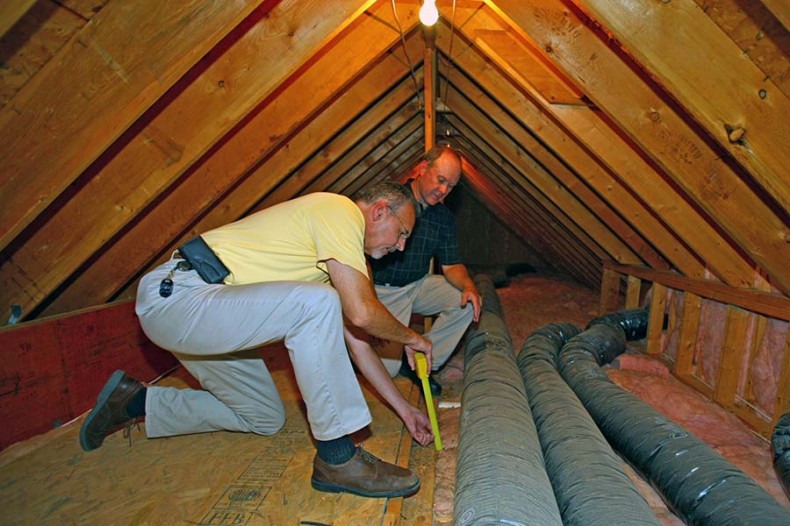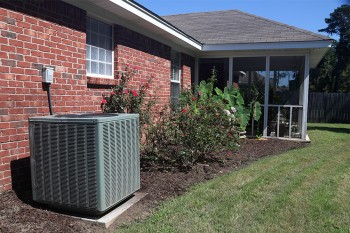Home energy audits
You’ll learn a lot, can save big money in long run
By Patrick KeeganAccompany the auditor and ask lots of questions.
If you haven’t had a home energy audit yet, it’s smart to think about one. Spending a few hundred dollars now can save you thousands of dollars over time.
A home energy audit is a detailed assessment that can meet different needs:
- What efficiency investments will be most effective in reducing your energy bills?
- Are areas of your home sometimes too hot or too cold? An energy audit can identify problems and solutions.
- Are you considering a new furnace, air conditioner or rooftop solar system? An energy audit will help you “right-size” these systems and identify complementary measures to help these large investments work most efficiently.
- Are you selling your home? An energy audit can document your home’s efficiency to help improve its resale value.
Online audit tools can give you a basic understanding of how your home compares to similar ones. However, a qualified and professional home energy auditor can use their experience and high-tech tools to provide a more thorough report. A professional energy audit can range from a quick, visual walk-through of the home to a more comprehensive, more informative — but more expensive assessment.

Recommendations can include changing how you use energy, such as turning the thermostat down while you are out.
What happens during an inspection
Energy audits require an examination of the building envelope (attic, floor, and exterior walls) and energy systems, such as the water heater, air conditioner and furnace.
Follow the auditor during the inspection, and ask questions to understand where the problems are, what you can address yourself and where you may need further professional help. The auditor may analyze your recent energy bills to determine what your energy is used for and if use has recently changed.
Finally, the auditor will ask about energy use behaviors that affect power bills. For example, is someone home all day, or does everyone leave for work and school?
An auditor may do some or all of the following:
- Blower door test: Windows are often the suspected cause for air leaks in the home, but there are usually larger and less obvious sources; a blower door test measures how airtight your home is and identifies where the air leaks are located.
- Duct blaster: Ducts move the warm and cool air around your home; duct testing can measure whether your ducts are leaking.
- Thermographic imaging: Seth Rosser, an energy advisor at United Cooperative Services in Texas shared, “Identifying where more insulation is needed is a key component in our energy audits — too little insulation will make a member use more energy than needed. Adding more can provide a quick return on investment.” Thermographic imaging is one way to identify where more insulation is needed. Infrared images show “cold” spots in a home’s envelope.
- Health and safety testing: Energy auditors are also trained to spot safety problems, such as an appliance that could cause carbon monoxide issues.
Following the assessment, the auditor will make recommendations to reduce energy use and improve comfort. If you take action based on the recommendations, you could lower your energy bill five to thirty percent, and perhaps even more!
Check with your electric co-op first before hiring an auditor. It may have a list of qualified energy auditors in your area or do audits.
About the Author
This column was written by Pat Keegan, who writes on energy efficiency for the National Rural Electric Cooperative Association, and Amy Wheeless of Collaborative Efficiency. For more information on ensuring quality energy efficiency work, visit collaborativeefficiency.com/energytips or email Pat Keegan at energytips@collaborativeefficiency.com.-
Share this story:




